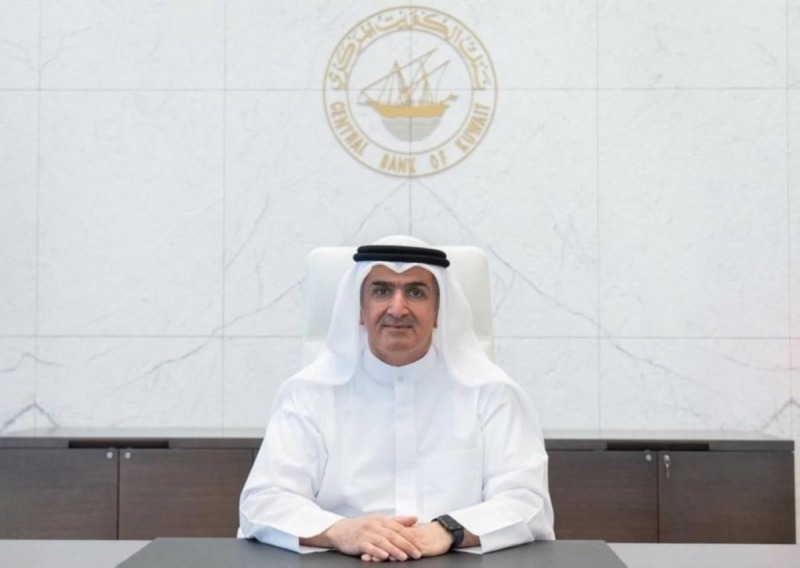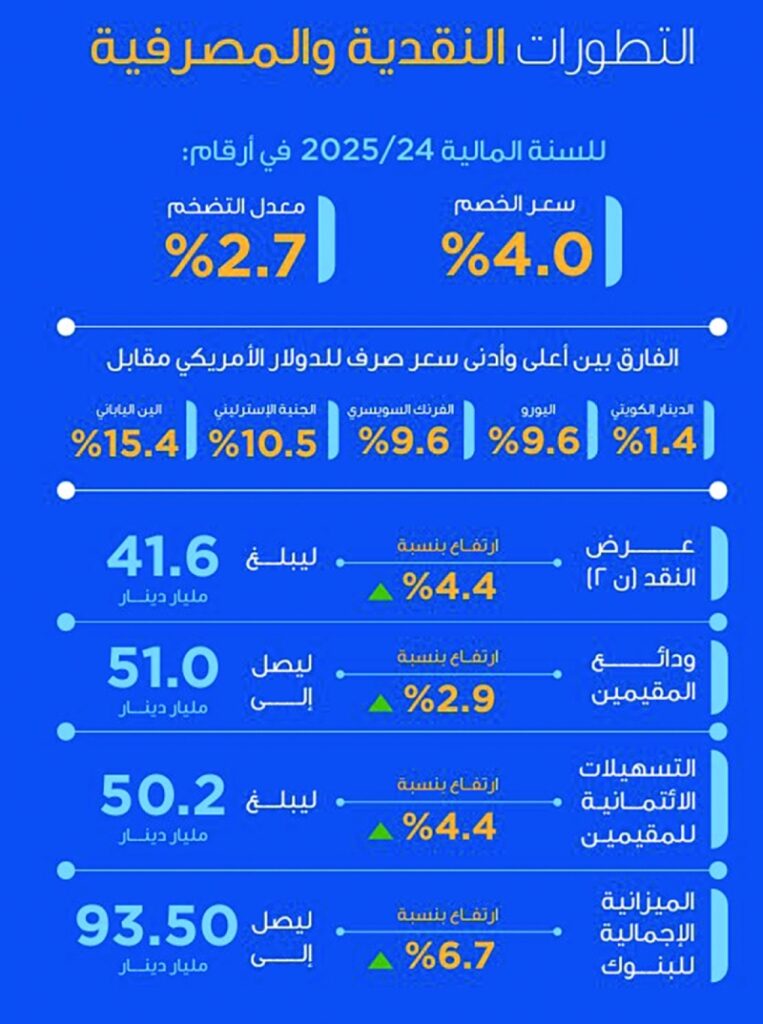Kuwaiti banks show strong resilience as CBK reports balanced monetary policy for 2024/2025

Basel Al-Haroun, Governor of the Central Bank of Kuwait (CBK), confirmed that the results of the bank’s latest periodic stress tests demonstrated the strength and resilience of Kuwaiti banks, showing their ability to withstand economic and financial shocks.
He explained that the CBK continued to pursue a balanced monetary policy throughout the 2024/2025 fiscal year, with a focus on maintaining monetary stability, ensuring the soundness of the banking system, and supporting the continuous flow of credit to productive sectors to sustain economic growth.
In his address on the Central Bank’s annual report for 2024–2025, Al-Haroun highlighted that the CBK played a pivotal role in supporting Kuwait’s economy amid global challenges. The year was marked by geopolitical tensions, fluctuating energy prices, and rapid shifts in monetary policies among major economies, all of which had significant implications for global growth, trade, and financial stability.

He noted that global central banks have cautiously begun lowering interest rates after an extended period of inflationary pressures and sharp rate increases in 2022 and 2023.
While inflation has shown signs of gradual stabilization, monetary conditions remain tighter compared to the past decade. Although the global economy is projected to see moderate growth in 2025, Al-Haroun cautioned that uncertainties persist due to ongoing geopolitical risks and disruptions to global supply chains.
Reflecting local and global developments, the CBK reduced the discount rate by 25 basis points to 4 percent, to bolster growth while maintaining monetary market stability.
The bank also continued to stabilize the dinar’s exchange rate against a basket of major currencies, a policy Al-Haroun described as a cornerstone of Kuwait’s economic stability, helping to mitigate inflationary effects on imported goods. He emphasized that this strategy supports sustainable growth and confidence in the national currency.
In the realm of financial infrastructure, the CBK intensified efforts to modernize financial systems, promote digital transformation, and enhance electronic payment systems. It also prioritized community financial awareness programs to strengthen banking literacy and protect customers from online fraud. The bank reaffirmed its commitment to investing in national talent to ensure the sustainability of Kuwait’s financial sector.
Financially, the Central Bank reported a net profit of 491.9 million dinars for the fiscal year ending March 31, 2025, compared to 451.8 million dinars in the previous year.
Revenues reached 545.7 million dinars, with expenditures totaling 53.9 million dinars. The bank’s total assets amounted to 12.841 billion dinars. Operations through the clearing house reached 17.42 billion dinars, while interbank settlements via the KASIB system amounted to 254.32 billion dinars.
The report outlined eight major pillars of the CBK’s work, emphasizing monetary and financial stability, liquidity management, and risk monitoring. It also highlighted the issuance of 31 CBK bonds worth 6.74 billion dinars and reported a decline in the inflation rate to 2.7 percent, down from 3.6 percent the previous year.
The bank achieved a 19 percent budget surplus across its expenditure items. In addition, the CBK expanded financial inclusion through simplified account-opening procedures for low-income groups and domestic workers, with 1.147 million accounts opened by January 2025 — underscoring the institution’s commitment to accessible and inclusive banking services for all segments of society.
Follow The Times Kuwait on
X, Instagram and Facebook for the latest news updates












